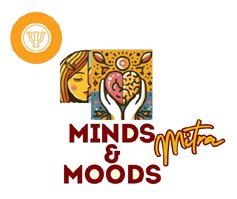How to Manage Anxiety in Daily Life: Therapist-Backed Tips
Anxiety is one of the most common yet misunderstood mental health challenges faced by people today. Whether it’s academic stress, workplace pressure, or relationship issues, prolonged anxiety can affect both mental and physical well-being. The good news is that with the right guidance from a Mental Health Counsellor, Psychotherapist, or Psychologist, anxiety can be effectively managed through Cognitive Behavioral Therapy (CBT), Rational Emotive Behavior Therapy (REBT), and Dialectical Behavior Therapy (DBT).
Understanding Anxiety and Its Impact
Anxiety is more than just occasional worry or fear. It becomes a concern when it interferes with your ability to function normally. People suffering from anxiety often experience constant tension, irritability, and a racing mind. Left untreated, it may lead to depression, anger issues, burnout, and even panic disorders.
Common Symptoms of Anxiety
- Restlessness or feeling on edge
- Rapid heartbeat or shortness of breath
- Overthinking or difficulty concentrating
- Fatigue, muscle tension, or headaches
- Sleep disturbances and irritability
- Feeling detached or out of control
Causes of Anxiety in Daily Life
Anxiety often arises from a combination of emotional, psychological, and environmental factors. Common causes include:
- Workplace or academic pressure
- Financial instability
- Relationship or marriage conflicts
- Childhood trauma or grief
- Negative thinking patterns
- Chronic health concerns
- Lack of emotional regulation or confidence
Therapist-Backed Tips to Manage Anxiety
Here are some evidence-based strategies recommended by psychotherapists and mental health counsellors for daily anxiety management:
- Practice Deep Breathing and Mindfulness: Techniques like meditation and slow breathing activate the body’s relaxation response, reducing panic and stress.
- Challenge Negative Thoughts: Using Cognitive Behavioral Therapy (CBT) or Rational Emotive Behavior Therapy (REBT), identify irrational fears and replace them with realistic thoughts.
- Follow a Routine: Structure brings emotional stability. Maintain regular sleep, meals, and exercise habits to balance your mind and body.
- Limit Stimulants: Reduce caffeine, nicotine, and sugar as they elevate stress hormones.
- Stay Physically Active: Exercise releases endorphins that naturally combat anxiety and depression.
- Seek Professional Help: Consulting a psychologist or counselling center for therapies like CBT, DBT, or Behavioral therapy ensures long-term emotional regulation.
- Connect and Communicate: Open up with friends, family, or through relationship counselling or personal counselling sessions to release pent-up emotions.
Professional Treatment Options for Anxiety
Anxiety management involves tailored treatment plans that may include:
- Cognitive Behavioral Therapy (CBT): Helps you identify thought patterns that fuel anxiety and teaches coping skills.
- Rational Emotive Behavior Therapy (REBT): Focuses on challenging irrational beliefs and promoting rational responses.
- Dialectical Behavior Therapy (DBT): Ideal for emotional dysregulation and stress control.
- Behavioral Therapy: Reduces anxiety through gradual exposure and positive reinforcement.
- Mindfulness-Based Stress Reduction: Encourages awareness and acceptance of the present moment.
- Executive Coaching and Workplace Stress Counselling: Helps professionals handle deadlines and prevent burnout.
FAQs on Managing Anxiety
Q1: Can therapy completely cure anxiety?
Therapy helps individuals manage and often overcome anxiety by changing thought patterns and coping mechanisms, though results depend on individual consistency and openness.
Q2: What kind of counsellor should I see for anxiety?
A Psychotherapist or Mental Health Counsellor specializing in CBT, REBT, or DBT can effectively guide you through anxiety management.
Q3: How long does it take to feel better?
Most people start noticing improvement within a few sessions of consistent therapy and daily practice of coping techniques.
Q4: Is medication necessary for anxiety?
Mild to moderate anxiety can often be managed with therapy alone, but in severe cases, a psychiatrist may prescribe short-term medication alongside counselling.
Q5: Can anxiety return after treatment?
Yes, stressful life events may trigger anxiety again. Ongoing self-care, personal counselling, and mindfulness can prevent relapse.
Managing anxiety is not about eliminating fear but learning to navigate it wisely. With support from a Mental Health Counsellor or Psychologist, one can transform anxious thoughts into balanced action. Whether through confidence building counselling, stress management therapy, or CBT-based interventions, consistent self-work leads to calm and clarity. Remember, seeking help is a sign of strength—not weakness.

